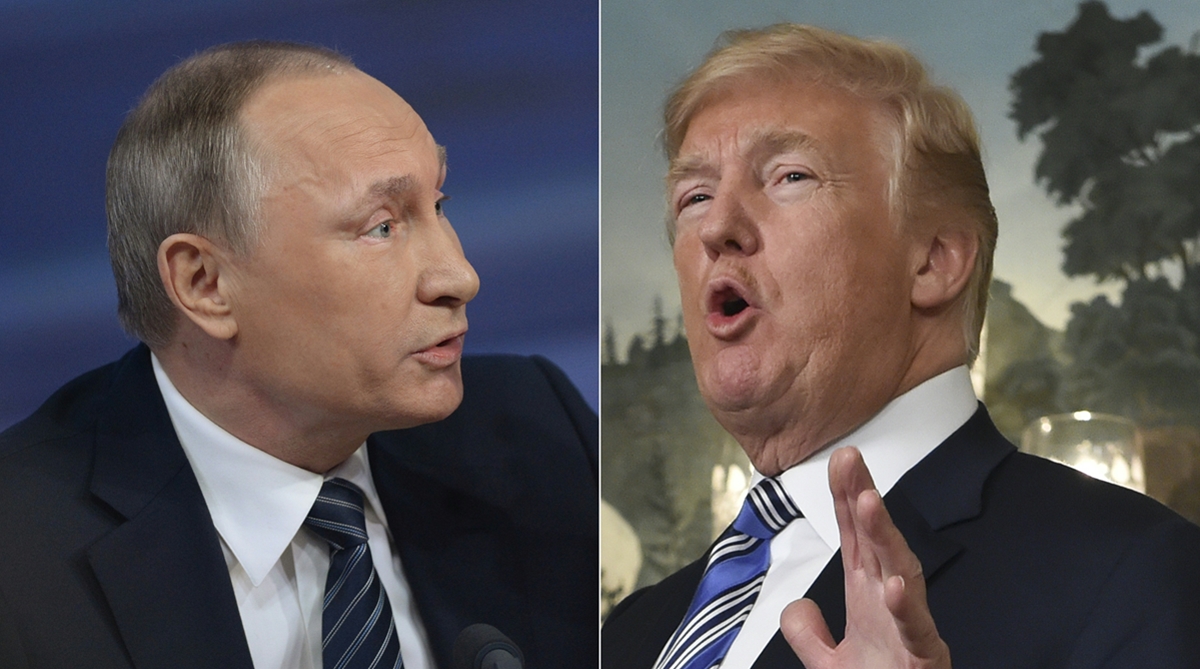International game theory is becoming increasingly complex and quirky. Vladimir Putin and Donald Trump have reaffirmed a trend that was manifest during the US President’s summit with his North Korean counterpart, Kim Jong-un ~ to hold the one-to-one in a third country. If it was Singapore on 12 June, the venue is Helsinki on 16 July.
Yet this is admittedly of relatively lesser moment than the fact that Thursday’s announcement was made jointly by the Kremlin and the White House ~ a far cry from the conduct of diplomacy during the Cold War era. Second, the meeting is bound to generate a bout of controversy for the White House, pre-eminently in its dealings with Europe.
Advertisement
The optics in the capital of Finland will be no less a matter of geopolitical interest than the outcome. The Kremlin is anxious to demonstrate that for all its adventurist foreign policy, it is not quite isolated on the international stage.
At another remove, President Trump has ignored criticism at home that he is inching towards cordial diplomatic relations with Putin. Having trashed Nato at the recent meeting of G7 in Quebec, Trump has now advanced a distinct feeler to Russia ~ “I’ve said it from day one, getting along with Russia and with China and with everybody is a very good thing,” he said.
“Syria, Ukraine and many other subjects will be discussed at the summit. It’s good for the world, it’s good for us, it’s good for everybody.” He did sound a mite presumptuous on Thursday. Britain, France and Canada will be less than convinced, however.
Small wonder that traditional US allies are concerned that the grandstanding in Helsinki, particularly if it follows a discordant Nato summit in Brussels five days earlier, could undermine confidence in the strength of the trans-Atlantic alliance. Those fears had deepened in Quebec, where Trump had debunked Nato as an entity that is “as bad as Nafta”, comparing the alliance to the North American free trade agreement he consistently denigrates as being concluded at the expense of the US.
Most importantly, the US President’s ineraction at the high table with a Russian leader chimes oddly with the European perception. President Putin has annexed Crimea, has pursued his expansionist agenda in Ukraine, and allegedly interfered in Election 2016, not to forget his tacit understanding with Bashar al-Assad of Syria and the bombardment from the skies, and the poisoning of a former KGB spy in Salisbury, UK. Above all, Washington has punished Moscow by imposing a cache of sanctions for what it calls “malign behaviour and meddling in US politics”.
Trump’s announcement, therefore, has rightly been described as a “carefully choreographed rollout” in foreign policy ~ a fortnight after the summit with Kim, one that scored more in terms of optics rather than substance. Some good must come out of the meeting on the 16th of July.











